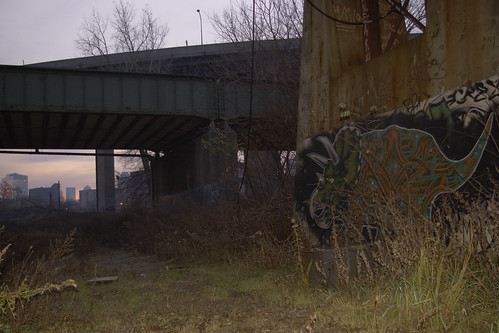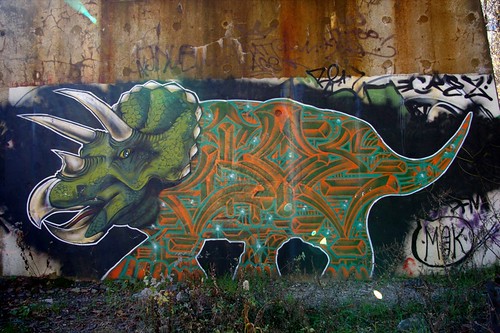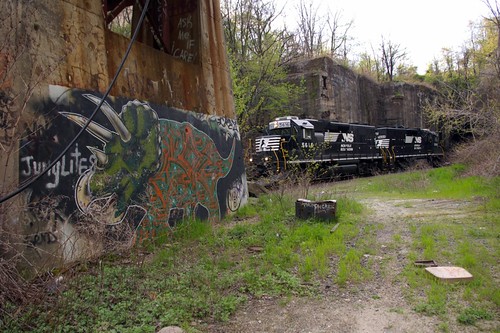by Bill Benzon
Over the past few years I’ve spent a great deal of time photographing graffiti in Jersey City, which is on the West bank of the Hudson River across from lower Manhattan. Most of that time I’ve photographed a handful of sites, over and over again, week after week, month after month. What I’ve seen is that things change. Of course the graffiti is eroded by the weather; in some cases it may also be “buffed” (eradicated) by the authorities. More likely, though, is that it will become over-written by other graffiti writers – that’s what they call themselves, by the way, writers, for their art is grounded in letters.
Even this piece, which looks like a green triceratops, is a name: “Joe”, shortened from “Japan Joe”, the nom de guerre of the writer:
It’s large; about 18 feet wide and seven feet high. Here you see a train going by:
Think of Japan Joe in that spot, working for several hours, surrounded by greenery, but also the large freight trains rumbling by. The trains and the greenery travel into his mind where they fuse into the image of a large green animal, the triceratops.
That’s the spirit of the place.
And, in time, Japan Joe’s triceratops had been degraded by the weather to the point that Kemos and Jnub could go over it without insulting Joe:
Life goes on.
Thus I have come to understand the graffiti site as more than a physical place. It IS that, but the physical place is to be understood, perhaps, provisionally, as a resource accessed by the graffiti, and thus by the graffiti writer. The site is a confluence of physical, social, and aesthetic energy.




